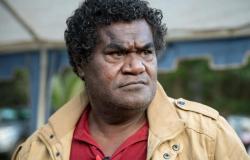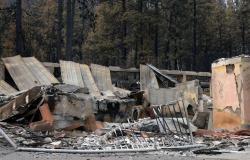Ivory Coast is becoming a powerhouse in West Africa's oil and gas industry, thanks to a strong regulatory framework, attractive tax conditions and innovative partnerships. Blessed with significant hydrocarbon reserves and progressive policies, the country has attracted investment from leading energy companies, cementing its status as a regional hub for energy production and exploration. The African Energy Chamber (AEC) welcomes Côte d'Ivoire's efforts to create an environment conducive to the development of oil companies.
This week, the AEC is participating in the SIREXE 2024 conference in Abidjan. Led by Executive Chairman NJ Ayuk, the chamber has engaged with global service companies such as Halliburton, Africa Global Logistics, Sahara Group and SLB, encouraging them to prioritize expansion and innovation. The AEC is committed to supporting Côte d'Ivoire's initiatives aimed at reducing energy poverty, promoting local potential and fostering economic development. As the country continues to expand its role in the regional oil and gas sector, the AEC highlights the importance of ensuring the energy transition includes oil. It is essential that industry stakeholders advocate for a just transition that recognizes the continued importance of oil in Africa's energy future while transitioning to more sustainable energy sources.
Ivory Coast's rigorous policies have enabled oil companies to carry out large-scale projects. The Baleine field, led by Eni and national oil company Petroci, is a prime example of what is possible when innovation meets effective governance. The field currently produces more than 22,000 barrels per day (bpd) and is poised for significant expansion. The first net-zero hydrocarbons project (scope 1 and 2) in Africa, the project is progressing with the arrival of critical infrastructure – the Petrojarl Kong FPSO and the Yamoussoukro FSO – which are expected to increase production to 60,000 bpd and add 70 million cubic feet of gas by the end of 2024. The project includes the continent's first-ever net-zero FPSO. This sustainable approach is what the continent needs. Companies such as Eni are using low-carbon solutions not only to operate, but also to prioritize decarbonization. This is what sets them apart. Petroci's partnership in this project underlines its central role in achieving Ivory Coast's energy ambitions.
In addition to the Baleine field, Eni made a significant discovery in March 2024 in block C1-205 – known as Calao – which is estimated to contain up to 1.5 billion barrels of oil. This discovery is expected to generate substantial revenues and create more than 8,000 jobs. Ivory Coast plans to begin exploiting the Calao deposit by 2026, thereby strengthening the country's energy security and economic growth.
Alongside the progress of projects, Côte d'Ivoire is also strengthening its policies regarding local potential. The government recently approved in principle the National Upstream Local Potential Policy, which aims to reduce dependence on foreign expertise by strengthening domestic capabilities. This policy is currently the subject of consultations in all regions, reflecting the country's commitment to fostering economic sovereignty and strengthening its energy sector. As the voice of the African energy sector, the AEC welcomes government efforts to advance the local potential policy, emphasizing the need for oil operators to increase hiring, training and contracting at the local level.
The country is also strengthening its position through international partnerships. In August 2024, the Ivorian Ministry of Mines, Oil and Energy signed production sharing agreements (PSA) with Eni for four offshore blocks, promising an investment of $80 million in exploration on three years. Similarly, onshore exploration was boosted by the signing of production sharing agreements between the ministry and Elephant Oil for three blocks, further diversifying Ivory Coast's energy portfolio and d exploit the hydrocarbon potential on land.
Exploration campaigns have revealed substantial deposits throughout the country and key international partnerships continue to advance Ivory Coast's oil and gas sector. In March 2024, Vaalco Energy acquired a 27.39% interest in the Baobab field through its purchase of Svenska Petroleum Exploration, valued at $66.5 million. The Baobab field, located offshore Ivory Coast, is expected to add substantial capacity to Vaalco's operations. Similarly, in November 2023, Ice Oil & Gas signed a PSA with Petroci for offshore block CI-705, continuing exploration in the Grand Lahou region with an investment commitment of $40 million over the next seven next years. To strengthen its energy footprint, Murphy Oil has signed production sharing contracts for five blocks in Ivory Coast in June 2023, covering both shallow and deep water areas. The Company's activities include the development of the deepwater Paon gas and light oil field in Block CI-103 and the evaluation of the potential of previous drilling in Blocks CI-531 and CI-709.
Ivory Coast's efforts to position itself as a regional oil and gas hub go beyond production. The ministry has identified 26 blocks available for lease and is accelerating the certification of reserves in existing blocks. Downstream opportunities also abound, with Petroci spearheading projects in refining and petrochemicals. In particular, the Ivorian Society by Rrefining (SIR), Ivory Coast's national refining company, plays a central role in meeting the country's growing energy demand, underscoring the importance of downstream development to support energy stability and growth economical in the long term.
“Côte d'Ivoire is not only a key player in the energy sector in West Africa, it is also a model for the future of oil and gas development in Africa. With its progressive policies, commitment to local potential and willingness to embrace innovation, Ivory Coast is positioning itself as a beacon of sustainable and inclusive growth,” Ayuk said. “It is essential to continue to develop these partnerships, invest in infrastructure and ensure that growth benefits the country and the entire African continent. »





